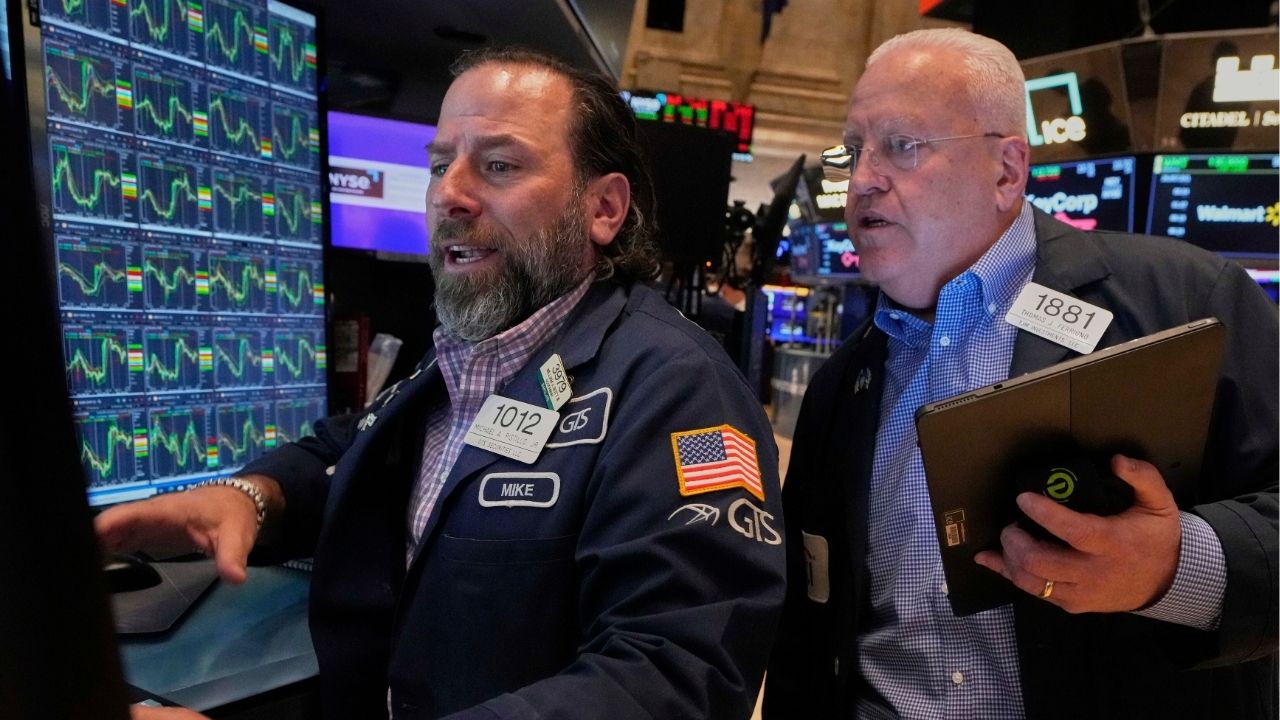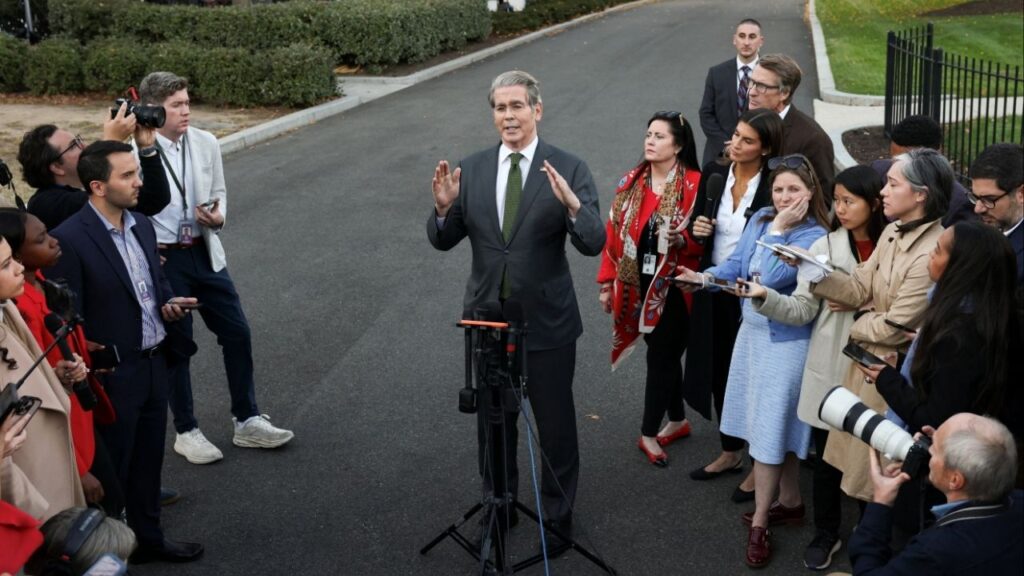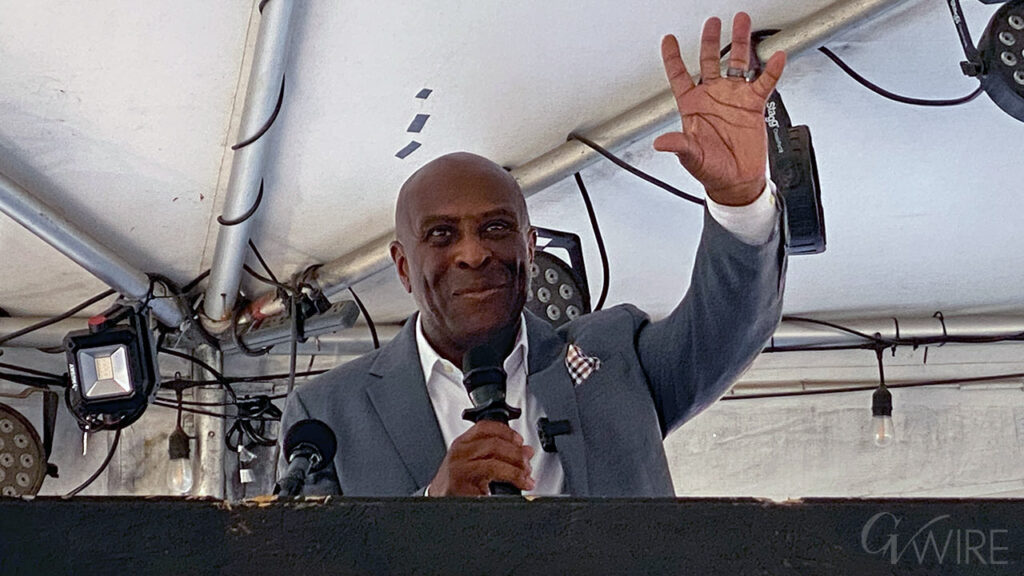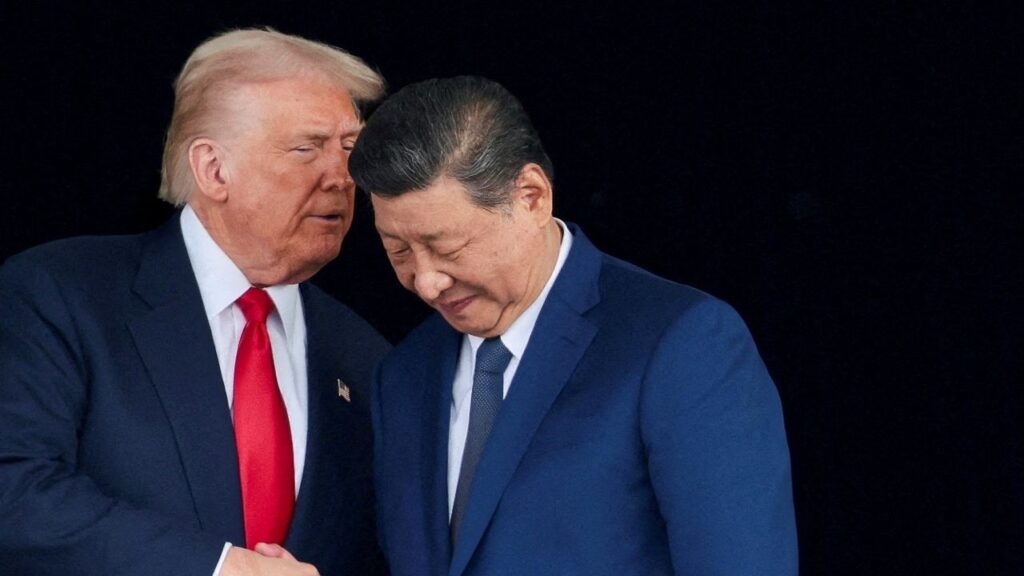Specialist Michael Pistillo, left, and trader Thomas Ferrigno work on the floor of the New York Stock Exchange, Thursday, April 10, 2025. (AP/Richard Drew)

- U.S. stocks waver as Trump’s trade war with China intensifies, spiking gold prices and sparking fear across markets.
- China raised tariffs on U.S. goods to 125%, escalating tensions despite Trump’s temporary tariff pause for other countries.
- Treasury yields surged as bond prices fell, intensifying economic pressure amid fears of a possible global recession.
Share
|
Getting your Trinity Audio player ready...
|
NEW YORK — U.S. stocks are shaky Friday as Wall Street’s monstrous week heads toward its close, while the rising price of gold, falling value of the U.S. dollar and moves in other financial markets indicate more fear as President Donald Trump’s trade war with China escalates even further.
The S&P 500 was down 0.4% in early trading. It’s coming off a sharp slide that erased a big chunk of its historic gains from the middle of the week, which came after Trump paused tariffs on many countries outside of China. The Dow Jones Industrial Average was down 232 points, or 0.6%, as of 9:35 a.m. Eastern time, and the Nasdaq composite was 0.1% lower.
Such modest moves, though, are hardly assured to last through the day if recent history is a guide. Stocks have been swinging not just day to day but hour to hour as investors struggle to make out where Trump’s trade war is heading and whether it will cause a global recession.
China Boosts Tariffs on US
China announced on Friday that it was boosting its tariffs on U.S. exports to 125%, to match the level of U.S. tariffs not including an earlier 20% imposed weeks ago.
“The U.S. alternately raising abnormally high tariffs on China has become a numbers game, which has no practical economic significance, and will become a joke in the history of the world economy,” a Finance Ministry spokesman said in a statement announcing the new tariffs. “However, if the US insists on continuing to substantially infringe on China’s interests, China will resolutely counter and fight to the end.”
Such rising tensions between the world’s two-largest economies can cause widespread damage for the world, even after Trump announced a 90-day pause on some of his tariffs for other countries.
The price of gold rose more than 2% to $3,250 per ounce following the latest escalation. It’s one of the areas of the market that investors have instinctually herded to when fear is high.
Other areas that have historically been seen as safe havens aren’t seeing the same wave, though. The value of the U.S. dollar fell again against everything from the euro to the Japanese yen to the Canadian dollar.
Prices for longer-term Treasury bonds, which are essentially IOUs from the U.S. government, also fell. That’s counter to their history, where Treasurys had long been seen as one of the safest possible investments.
Drop in Prices for Treasury Sent Yields Higher
The drop in prices for Treasurys in turn sent their yields higher, because investors are essentially demanding to get paid more for the risk of holding them. The yield on the 10-year Treasury rose to 4.50% from 4.40% late Thursday and from just 4.01% at the end of last week.
Several reasons could be behind the rise in yields, including investors outside the United States selling their U.S. bonds because of the trade war. Regardless of the reason for their rise, higher yields crank up pressure on the stock market and raise rates for mortgages and other loans going to U.S. households and businesses.
Not even a set of stronger-than-expected profit reports from some of the biggest U.S. banks was able to lift the stock market.
JPMorgan Chase, Morgan Stanley and Wells Fargo all reported stronger profit for the first three months of the year than analysts expected. JPMorgan Chase rose 1.6%, but Morgan Stanley slipped 0.2%, and Wells Fargo dropped 3%.
Another better-than-expected report on inflation also did little to help the mood. It could give the Federal Reserve more leeway to cut interest rates if it feels the need to support the economy. Lower rates would help make mortgages and other loans cheaper to get.
But Friday’s report on inflation at the wholesale level was backward looking, measuring March’s price levels. The worry is that inflation will feel more upward pressure in coming months as Trump’s tariffs make their way through the economy.
In stock markets abroad, indexes were scattershot around the world. Germany’s DAX lost 1.6%, but the FTSE 100 in London added 0.3% as the government reported the economy, the world’s sixth largest, enjoyed a growth spurt in February. Japan’s Nikkei 225 dropped 3%, while Hong Kong’s Hang Seng climbed 1.1%.



















